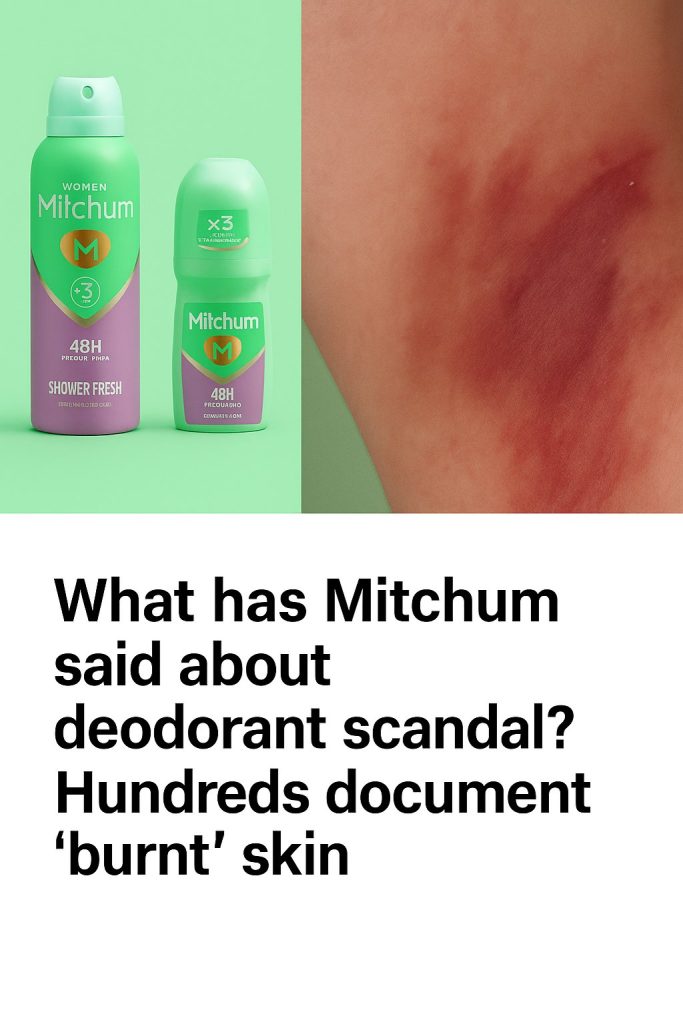Mitchum, a household name in personal care, has found itself embroiled in a growing controversy this week as hundreds of customers have taken to social media to report alarming skin reactions linked to its best-selling deodorant. Users across various platforms have described incidents of burns, rashes, and irritation, sparking concern among consumers and watchdog groups alike.
The backlash began earlier this week when multiple individuals posted images and testimonials describing painful skin reactions after using one of Mitchum’s widely popular deodorants. Comments flooded in, detailing symptoms ranging from mild redness to blister-like burns, prompting heated discussions around product safety and corporate responsibility.
Many users state that the irritations appeared shortly after applying the deodorant, with some reporting sensitivity extending beyond just the underarm area. This widespread negative feedback has raised serious questions about the formulation and quality control measures behind the product.
Adding to the concern is the fact that Mitchum’s best-selling deodorant is often marketed as “long-lasting” and suitable for sensitive skin, making the reports even more jarring to loyal customers who trusted the brand for everyday use.
In response to the mounting complaints, Mitchum issued a public statement acknowledging the reports and assuring customers that the safety and satisfaction of their consumers is a top priority. The company confirmed that it has launched an internal investigation to examine the cause of the reactions and is collaborating with dermatologists to assess potential ingredients linked to the burns and rashes.
“We are deeply concerned by the reports and are committed to ensuring the highest standards of quality and safety,” the statement read. “Consumers experiencing any adverse effects should discontinue use immediately and consult a healthcare professional.”
Experts in dermatology stress that such reactions might stem from several factors, including allergic responses to active ingredients like aluminum compounds, alcohol, or fragrances commonly found in antiperspirant formulations. However, the sheer volume and severity of complaints suggest that further scientific evaluation is warranted.
Consumer protection advocates are calling for more transparency from Mitchum, urging the brand to provide detailed information on the product’s ingredients and safety testing protocols. Meanwhile, some users have started petitions demanding recalls and better regulatory oversight.
The controversy also highlights growing consumer vigilance in the skincare industry, where health-conscious buyers increasingly expect brands to prioritize hypoallergenic and dermatologist-approved products. Social media’s role in rapidly amplifying customer voices is evident as the debate surrounding Mitchum’s deodorant shows no signs of fading.
For now, customers are advised to monitor for any adverse skin reactions after deodorant use and report any incidents to the company and relevant consumer safety authorities. Mitchum has pledged to update the public as its investigation progresses and to take appropriate corrective actions if necessary.
This story continues to develop as more users share their experiences and Mitchum works to regain consumer trust amid the backlash. The incident serves as a poignant reminder of the importance of rigorous product safety in everyday personal care items.



